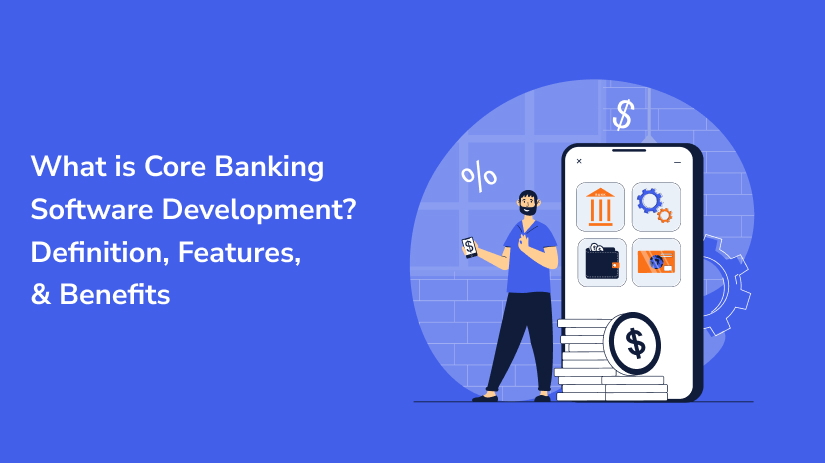In today’s fast-paced digital world, the banking sector is undergoing a significant transformation. Core banking software development lies at the heart of this revolution, enabling financial institutions to streamline their operations, enhance customer experiences, and stay competitive in the market.
In this article, we’ll delve into the intricacies of core banking software development, exploring its definition, features, and the myriad benefits it offers.
Understanding Core Banking Software Development
Core banking software refers to the central platform that facilitates various banking operations, including deposit and loan processing, customer management, and transaction processing.
Essentially, it serves as the backbone of a bank’s IT infrastructure, integrating different banking modules to provide a seamless and unified banking experience.
Features of Core Banking Software
Customer Management
Core banking software enables efficient customer data management, allowing banks to maintain comprehensive profiles and provide personalized services.
Transaction Processing
It facilitates real-time transaction processing across various channels, ensuring swift and secure fund transfers.
Integration Capabilities
These systems seamlessly integrate with other banking applications and third-party services, enhancing interoperability and scalability.
Compliance and Security
Core banking software adheres to strict regulatory standards and incorporates robust security measures to safeguard sensitive financial data.
Analytics and Reporting
Advanced analytics tools embedded within the software enable banks to derive valuable insights from customer behavior and transaction patterns.
Connect with us for Fintech Development Needs
Trusted by companies like Plaid, Yodlee, Codat.
Benefits of Core Banking Software Development
Enhanced Efficiency
By automating routine banking tasks and streamlining workflows, core banking software significantly boosts operational efficiency.
Improved Customer Experience
With features like mobile banking application development, customers can enjoy seamless access to banking services anytime, anywhere, enhancing overall satisfaction.
Cost Savings
Consolidating multiple banking functions onto a single platform reduces maintenance costs and eliminates the need for disparate systems.
Scalability
Core banking software is designed to accommodate growth and adapt to evolving market demands, ensuring scalability and future readiness.
Competitive Advantage
Banks that leverage cutting-edge core banking solutions gain a competitive edge by offering innovative services and staying ahead of the curve.
The Role of Financial Engineers and Ruby on Rails Development
Financial engineers play a crucial role in the development of core banking software, leveraging their expertise in finance, mathematics, and computer science to design robust and efficient systems.
Ruby on Rails development, known for its rapid prototyping and scalability, is often employed in building modern core banking solutions due to its flexibility and agility.
Conclusion
In conclusion, core banking software development is integral to the modernization of the banking industry, empowering institutions to meet the evolving needs of customers in a digital-first world.
By embracing innovation and leveraging advanced technologies like mobile banking application development, banks can unlock new opportunities for growth, efficiency, and customer satisfaction.
Whether it’s donor manager software or robust transaction processing systems, investing in core banking software development is essential for banks looking to thrive in today’s competitive landscape.
Connect with us for Fintech Development Needs
Trusted by companies like Plaid, Yodlee, Codat.
Frequently Asked Questions (FAQs)
1. What is core banking software development?
Core banking software development involves the creation of centralized software systems that facilitate various banking operations, such as deposit and loan processing, customer management, and transaction processing.
2. What are the key features of core banking software?
Core banking software typically includes features such as customer management, transaction processing, integration capabilities with other banking applications, compliance and security measures, and analytics and reporting tools.
3. How does core banking software benefit banks?
Core banking software offers several benefits to banks, including enhanced efficiency through automation and workflow streamlining, improved customer experience with features like mobile banking applications, cost savings by consolidating banking functions, scalability to accommodate growth, and competitive advantage through innovative services.
4. What role do financial engineers play in core banking software development?
Financial engineers leverage their expertise in finance, mathematics, and computer science to design robust and efficient core banking systems. They contribute to the development of sophisticated algorithms, risk management tools, and financial models embedded within the software.





